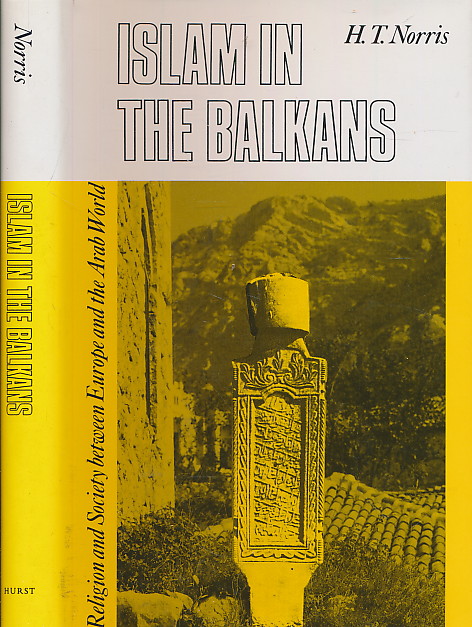Islam in the Balkans: Religion and Society Between Europe and the Arab World
Izvorna cijena bila je: €40,00.€30,00Trenutna cijena je: €30,00.
Na zalihi
| Težina | 791 g |
|---|---|
| Format | 15 × 22 cm |
| Autor | |
| Izdavač | |
| Mjesto izdanja | London |
| Godina | 1993 |
| Broj stranica | 304 |
| Uvez | Tvrdi |
| Stanje knjige | Kao nova |
The tragic events that began to unfold in the former Yugoslavia at the beginning of the 1990s have drawn the world’s attention to the history and rich culture of the Muslim communities of Bosnia especially, but also of Albania, Kosovo and Macedonia – the historic heartland of Muslim Europe. Here H. T. Norris breaks new ground by focusing on their religious and intellectual links with the Arab world, Persia and Central Asia, whereas the few previous publications on the subject have been mostly concerned with the more obvious links between the Balkan Muslims and the Turks. Norris illustrates from a wide range of sources the many channels through which the Arabs and Persians were linked with Balkan peoples, especially after the Ottoman conquest, in their art, architecture, literature and religion – direct contacts were also forged through Sufism. From the earliest times, also, many Balkan Muslim soldiers and bureaucrats, as well as scholars and poets, made an impact on the wider Islamic world, the most prominent being Mohammed Ali, the founder of modern Egypt. The resurgence of Muslim identity in Bosnia-Hercegovina and Kosovo has of course much to do with the aggressive nature of Serbian nationalism. But it is also a legacy of the region’s relations over many centuries with the Arab countries and Persia, now given a new meaning in the wake of Serbian attempts to ‘cleanse’ Sarajevo and other cities of their Muslim inhabitants. As the wider world has become aware, for the first time in several generations, of the phenomenon of Muslim Europe, many people of all persuasions now want to know and understand more about it, and the forces which have been tearing ancient communities apart and threatening a wider conflagration. Up till now, the sources available to them have been largely concerned with power politics, economics and demography. H. T. Norris’s cultural investigation, the fruit of many years’ research, corrects this imbalance.
